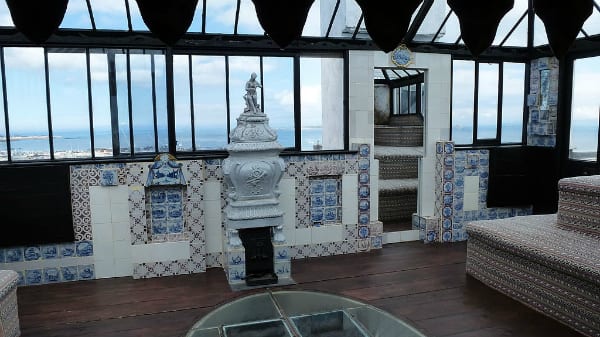Victor Hugo’s Hauteville House (Writers’ Spaces series #3)
Victor Hugo’s Hauteville House (Writers’ Spaces series #3)
Victor Hugo’s Hauteville House (Writers’ Spaces series #3)
-
Hannah
-
Hannah

So far in my Writers’ Spaces series I’ve visited a tower writing room where privacy was key, and two homes where novelists penned their works at tables in snug family rooms. Today’s writing space is both snug and private, but neither of these factors are what really mattered to the writer: this is a room with a view.

Welcome to the Lookout at Hauteville House, 38 Rue Hauteville, St. Peter Port on the Channel Island of Guernsey, where the writer Victor Hugo lived and wrote for 14 years.
Hugo (1802–1885) is remembered today as one of the greatest (some say the greatest) French writers.

He lived all his life in France until 1855, when he was forced to leave his beloved country and live in exile. Hugo was an outspoken social critic with a voice that carried; he spoke out against the death penalty, he spoke out against social injustice for the poor, and, when Napoleon III seized power of the country, he spoke out against him, calling him a traitor.
Guernsey was a safe haven for Hugo between 1855 and 1870, when Napoleon fell from power and Hugo could return to France. He bought Hauteville House in 1856, knowing that owning property on the island would, by law, protect him from deportation.

Hauteville House, rear aspect (Source)
Hugo made the house his home, putting great thought and effort into decorating and furnishing the house (this New York Times article has a wonderful photograph of the drawing room, and Walls With Stories features some other interior photos that show the opulence). But it is at the top of the house that he really left his mark, in the glazed lookout that affords views over St. Peter Port and across to the beautiful islands of Herm and Sark. He called this ‘The Crystal Room’, because it is so beautifully light.
There Victor Hugo every morning, standing up and looking out at the sea and the islands, beyond which lay home – France. Clearly, he felt the pull of his homeland and ached for her struggles, for while at Hauteville House he wrote the great novel Les Misérables, a powerful and poignant study of social injustice (Les Misérables means those who are wretched).
Perhaps you have seen a film adaption of Les Misérables, or seen the very successful musical production – or, indeed, watched the recent BBC television series based on Hugo’s work. But have you ever read Les Misérables? Many people are put off by its length, but it really is so beautifully written, and so moving. Here is how he writes the death of Eponine :
‘Promise to give me a kiss on my brow when I am dead. I shall feel it.’
She dropped her head again on Marius’ knees, and her eyelids closed. He thought the poor soul had departed. Eponine remained motionless. All at once, at the very moment when Marius fancied her asleep forever, she slowly opened her eyes in which appeared the sombre profundity of death, and said to him in a tone whose sweetness seemed already to proceed from another world:
‘And by the way, Monsieur Marius, I believe that I was a little bit in love with you.’
Not only is the writing imbued with emotion, but there is such wisdom in the words. ‘Even the darkest night will end and the sun will rise,’ Hugo writes. ‘Those who do not weep, do not see.’ And: ‘To love another person is to see the face of God.’
Could he have written this great novel in a room without a view – a view of the sea and the heavens, with the promise of his beloved France on the horizon? We will never know. But if you visit Hauteville House, now a museum, and climb to the Lookout, you are bound to feel as Hugo felt in that place: inspired.